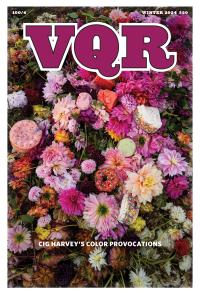
The Strangeness of AWP: A Postmortem
It’s two weeks later and I’m trying to remember why I went to AWP. The only thing I can clearly remember doing with purpose at this year’s conference is embarking on an hour-long trek through downtown Denver on the first night I arrived, in search of a liquor store open past 10 p.m.
“Good luck finding a liquor store downtown,” said nearly every bartender we stopped to ask along the way, in search of a cheap six-pack we could enjoy in front of the free HBO at our hotel. We marched onward. When we finally found a store—a smelly neon cave tucked under a pool hall mysteriously called Tarantula’s—I stood by the fridge of beer and said to my friend, “I feel weird.”
“Me too,” he said, but I really meant it. I was dizzy, probably suffering a combination of jet lag, climate contrast (I’d just come from 90-degree Florida), and mild altitude sickness. Standing on a slightly slanted floor under fluorescent lights where the cases of Sierra Nevada were fourteen dollars and a man behind me was saying he liked my scarf, when I wasn’t even wearing one, yeah, I felt weird.
It seems to me now a perfect capsule of the AWP experience. At AWP, you sit at a table in the book fair peddling your literary journal, try to answer writers when they ask why you haven’t published their work, walk past tables of literary journals, wondering why they won’t publish your work, and then attend panels where during the Q&A, writers, instead of asking questions, talk about where they’ve published their work. Then you go to dinner with someone from a slightly better MFA program, someone you only sort of know, who carefully avoids asking where you’ve published your work, and then you choose a bad bar in which to pay too much money for a watered down cocktail, only to end the night walking across the strangely out of place Millennium Bridge, not quite tired enough to sleep and wondering who, in God’s name, will ever publish your work.
Everything during the week of AWP is cast in the desperate, dizzying and very unflattering fluorescent lights often found in sketchy liquor stores.
Even during Michael Chabon’s keynote address, which was easily one of the most captivating and honest craft talks I’ve ever heard, the takeaway lesson was Chabon’s only slightly tongue-in-cheek message, “I want to make art that I can sell for cash money.” When I saw Joy Williams read from the novel she’s working on, her usual Johnny Cash getup—black overcoat, black jeans, black cowboy boots, and sunglasses—lost a little bit of its panache against the gold paisley backdrop of the convention center meeting room. At the panel on “All-Around-Bitch: The Challenges of Writing Unlikable Female Protagonists,” young women were so desperate to attend that when the room was filled to capacity, they sat on the floor in the aisle, and slumped against the makeshift walls, pens poised to receive the Gospel of Bitch. Even when I left the convention center, to attend the WILLA roller derby-burlesque-guerilla reading event at the Denver Press Club, things felt a little strange; that will happen, it turns out, when a reading by Antonya Nelson is followed with a very naked performance by a burlesque dancer named Lola Van Ella.
At the table I was manning, an acquaintance came up to congratulate me on my novel. I thanked him and when he walked away, I thought, what novel? Am I wearing a scarf and writing a novel that I don’t know about?
The strangeness continued. On the last evening, more confused than ever, we found ourselves at the AWP Dance Party, at which everyone drinks for free for the first hour and spends subsequent hours flailing their limbs on a parquet dance floor. As I clutched a plastic cup full of Yellow Tail red wine and bopped to Marvin Gaye, and David Kirby and Barbara Hamby’s boogie inched closer and closer, and my friend walked up to Colson Whitehead and said, “Hey, man, you’re Colson Whitehead!” to which Colson Whitehead said, “Yeah, man, I am,” I realized something: This is exactly what we came for.
In the midst of all the strangeness, we came to hear Michael Chabon insist that the ability to see likenesses in things, to make similes and metaphors, is the very foundation of morality. We came to sit in a room and hear Joy Williams read about a mother and daughter on a train and recognize echoes of Taking Care’s “Train” in her words. We came to hear Pam Houston interrupt everyone at the panel on unlikable female protagonists to say, “What exactly is it we’re not saying here?” We came to feel a communion of awkwardness when a woman takes off her clothes at the Denver Press Club, in honor of girl writers who would never. We came to dance close-ish to David Kirby and Barbara Hamby in the dark, to confess to Colson Whitehead that we might not be thinking clearly, and to have him confess back, “I’m drunk, too, man.”
I looked around the dance floor. We came to feel less lonely, to stand in the same too-bright room with other writers, who were all sliding down a poorly-constructed, slanted floor, in search of affordable, if not free, booze. Amid all that, we came because we hoped to find some likenesses. We take what we can get. I paid the fourteen dollars for the six-pack. Sometimes, the truth is that I just want to make art that I can sell for enough money to buy a six-pack in Denver.
